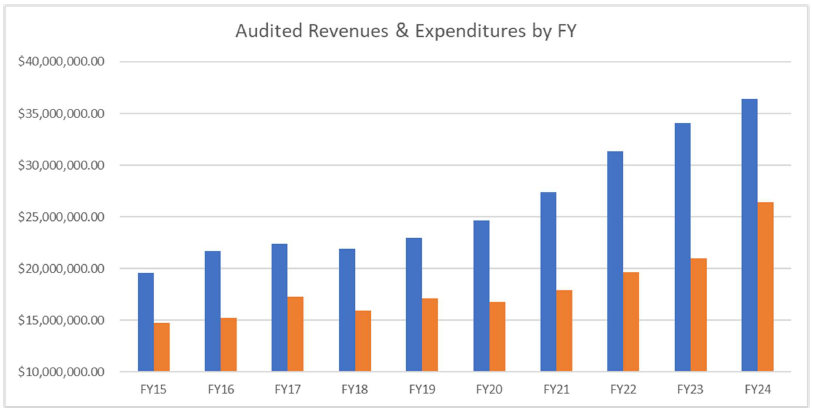DFCS to tackle challenge of ‘hoteling’ children in offices, hotels
Published 12:00 am Monday, January 23, 2023
ATLANTA — On any given day in Georgia, at least 50 children in foster care are sleeping in a hotel or office of the Georgia Division of Family and Children Services, according to the department tasked with investigating reports of child abuse and neglect.
It’s a practice called “hoteling,” said DFCS director Candice Broce. Children considered “complex” often have difficulty obtaining placement due to a heightened level of supervision that they may require and are most likely to be subjected to hoteling.
Trending
“If a child is suicidal, homicidal, suffering from active addiction, sexually or physically aggressive, delinquent or disabled, we may be wholly unable to find an appropriately-equipped foster family or group home placement,” Broce said. “Demand far exceeds supply for complex children.”
In fiscal year 2022, DFCS spent $28 million in hoteling costs.
“We have been hellbent on ending hoteling, a practice born out of necessity but one that contradicts our mission and crushes our workforce and derails life saving work,” Broce said. “You cannot make progress on your foster care cases if you are supervising a high-needs child in the office or a hotel room. Burnout is imminent. And once you quit, your caseload is immediately redistributed among the remaining resilient few.”
The agency launched a pilot program for providers enhancing per diems per child at risk of hoteling, a price tag totaling more than $7 million for per diem housing and staffing, according to Broce. The pilot helped reduce the number of children being housed in an office or hotel to approximately 20 per day through last June.
“Now, a child in our custody spends, on average, fewer total days being hoteled, and we have endured short stays for children without the highest levels of need,” Broce said. “These days, the children with the longest stretches in a hotel or office are the most complex youth in our custody and sometimes new high-needs youth are entering our custody faster than we can secure placements for existing hotel youth.”
During her Jan. 17 presentation to the House and Senate joint appropriations meeting, Broce said there were 63 DFCS children in hotels statewide the previous night. Approximately 16% had a confirmed or suspected autism diagnosis, 11% had an IQ below 70 and 40% had a history of delinquency. While two-thirds of those children entered into custody due to abuse or neglect, Broce suggested that at least one-third of those children could have avoided foster care had adequate health care services been available and accessible.
Trending
Parents’ or caregivers’ inability to get appropriate medical or psychiatric services to address a child’s need often results in a judge ordering the child to DFCS custody. Sometimes the parent or caregiver claim that they’re scared for the child’s safety or their own safety, Broce said.
“Across Georgia there’s a pervasive, yet false belief that DFCS has special access to services and treatment, especially psychiatric residential treatment,” Broce said. “For those parents who are truly struggling to help their high-needs child, your heart breaks. That child does not need to enter foster care to get what they need, but it happens all the time. There will be no evidence of abuse or neglect. These days especially, it is tough to find behavioral services, psychological counseling and psychiatric treatment for children.”
Earlier, more forceful interventions could assist families without displacing the child from their home, Broce added.
The biggest challenge in the DFCS foster care program, Broce said, is violent teenagers — some charged with serious crimes — that foster care is not equipped to accommodate.
“Imagine a master’s degree-wielding 20-something-year-old social worker with 20-something cases on her plate who gets an email at 3 p.m. on Friday — subject line: Court order attached still gathering info — to go pick up a teenage boy charged as an adult for rape with a long history of violence, alone in her Honda Civic,” Broce described. “She’ll probably quit right then and there. And the foster families and group homes are reluctant to accept such violent youth … Eventually they will be at hotels at serious risk.”
This legislative session, DFCS representatives plan to propose legislation to “fix statutory loopholes and ambiguous definitions and contradictory terms,” and bolster efforts to eliminate hoteling. The agency also plans to improve the efficiency of record access and record keeping of children in DFCS custody.
“When we’re able to track down paper copies, hustle relatives and friends for information, and eventually get our hands on child-specific data pre-foster care, we often see a child who was already enrolled on Medicaid or at least eligible for it but did not get the right services and treatment to mitigate the health issues now landing them in our custody,” Broce said. “Theoretically, their family had health care at their fingertips.”
Improving Medicaid coverage could help address a child’s needs earlier and more effectively, Broce said.
Of the 10,750 children currently in foster care, more than 6,600 are placed with foster families; 2,000 are placed with relatives; and 1,314 are living in a congregate care or group home setting.
After Broce’s presentation to the joint appropriations committee, both Republican and Democrat lawmakers expressed support for helping the agency eliminate hoteling.
“I’m confident that they’re going to succeed at getting rid of hoteling,” said state Rep. Matt Hatchett, chair of the House Appropriations Committee.
Minority Leader James Beverly expressed support on behalf of Democrats.
“I know that our caucus is absolutely committed, as it is with yours, to ending hoteling in the state of Georgia,” Beverly said. “I invite my Republican colleagues in this space where we’re working together to end hoteling, let’s work together to supply health care to all Georgians who need it.”




